
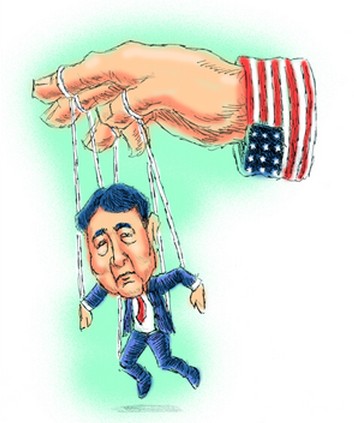 |
| Illustration: Peter C. Espina |
Key Words:US President Barack Obama; Shinzo Abe; US; Japan; US-Japan ties
Realted Reading:
>> What are ASEAN’s expectations for China-US relations?
>> ASEAN chair appeals to DPRK to postpone rocket launch forever
>> China willing to enhance security, strategic cooperation with ASEAN: premier
Japanese Prime Minister Shinzo Abe has postponed his visit to the US until February due to US President Barack Obama's busy schedule for the month.
Obama's refusal to accept Abe's visit is not a sign of alienation between Japan and the US. It is only an issue of timing.
Usually, a lot of preliminary work needs to be done by the two countries before President Obama can meet with Japan's prime minister.
Some work may be undertaken under the table. For example, Japan and the US want to revise the Guidelines for Japan-US Defense Cooperation, which is aimed at China's rise. We cannot rule out the possibility that the two countries may be preparing for the negotiation of the amendment.
Although the Japan-US alliance has suffered from frictions between the two countries, such as the relocation of the Futenma Marine Corps Air Station, Japan-US relations will still intensify.
Japan hopes that the Japan-US alliance will develop steadily against the backdrop of the change of Japan's leadership. The two countries will have a firm and very active political relationship in the future.
As for Japan's territorial disputes with other countries, such as China, South Korea and Russia, these have already taken a toll on Japan's international image. Japan aims to mitigate the situation and break the deadlock resulting from the territorial spats.
Thus, Japan has adopted a very clear diplomatic goal and plan. It wants to stabilize the situation and respectively appease the countries which it has disputes with.
As an ally of the US, South Korea ranks high on Abe's diplomatic list. Fukushiro Nukaga, the special envoy of Japanese Prime Minister Shinzo Abe, visited South Korea on January 4. It was the first country that Japan's special envoy chose to visit.
Then, Japan's Foreign Minister Fumio Kishida visited the Philippines, Singapore, Brunei Darussalam and Australia from January 9 to 14.
During the trip to the Philippines, Kishida said he and his Philippine counterpart Albert del Rosario agreed on "strengthening policy dialogue, enhancing maritime cooperation and other measures."
The Japanese prime minister's visit to Vietnam, Thailand and Indonesia is the third step of the Abe administration's diplomatic plan. Vietnam also has a territorial spat with China. His visit will cast a shadow over the tensions between China and Japan.
Abe's visit to the US will be the fourth step, which is also an important one.
In Manila, Kishida claimed that Japan and the Philippines pledged to increase their maritime cooperation in the face of territorial disputes with China, an outcome of Kishida's visit to the country.
During the trip, the Philippines Department of Foreign Affairs described Kishida's visit as an opportunity for both countries to advance a strategic partnership under the new Japanese administration.
The Philippine and Japanese foreign ministers agreed to enhance maritime security cooperation.
Many ASEAN countries believe they will greatly benefit from Japan's rise, which would ensure stability and prosperity in this region.
However, in ASEAN, there have also been different voices on China's rise and threat. China and countries in the Indo-China Peninsula enjoy friendly and close ties. Although Japan has pushed forward its cooperation with ASEAN, China is an indispensable partner to ASEAN in terms of economic development.
Japan's attempts to sow discord between China and countries of ASEAN, and thus profit at the expense of China, may all be in vain.
Japan's toughening stance toward China has been constant. It also mirrors Japan's national interest and wrong historical viewpoint. The Abe administration will continue to stand firm against China.
There are some concerns that Abe's tough stance in handling relations with Asian neighbors may cause tensions to get out of control. Nonetheless, Japan is an ally of the US. Japan's actions are controlled by the US.
The Asia-Pacific region is the "growth center" of the 21st century which is spurring global economic growth. The US is willing to play a significant role in the Asia-Pacific region. Japan regards the US "pivot to Asia" as a chance to rectify its international image, while the US has its own plans.
Abe's right-leaning attitude toward Japan's wartime history has drawn attention from the White House.
The US plans to play a dominant role in the Asia-Pacific region, from its economy to its security. The US will not let Japan use its own way to deal with the disputes with China, destroying US policy and its larger plan.
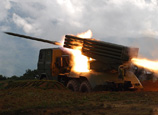
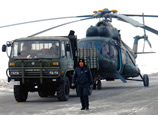


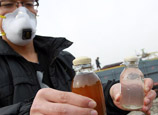
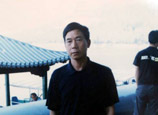










 'Sister House' case urges efforts in combating corruption in affordable housing
'Sister House' case urges efforts in combating corruption in affordable housing


![]()
